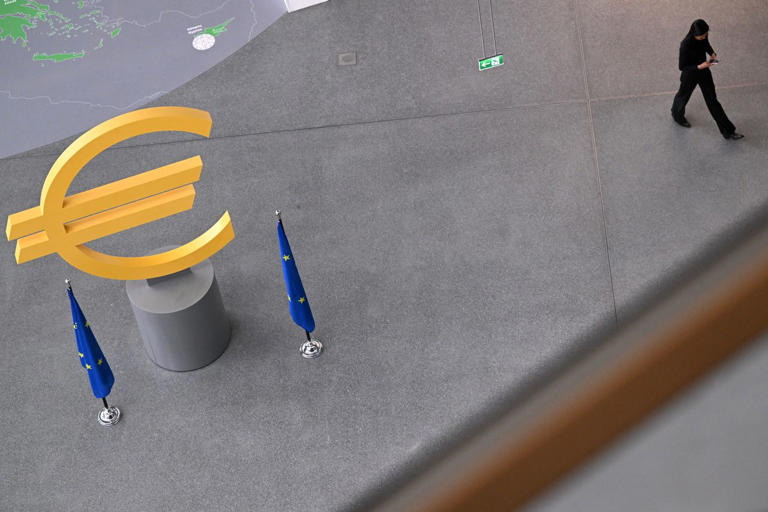In the early trading hours of Monday, European stock markets experienced a significant downturn, accompanied by a decline in the value of the euro. This decline was driven by the notable advancements of far-right parties in the European elections and substantial losses incurred by President Emmanuel Macron’s alliance, prompting him to announce a snap election.
At the opening of trading, the euro weakened by 0.5% against the dollar, reaching a one-month low of $1.0747, as reported by FactSet, a financial data provider. In France, the CAC 40 index, a benchmark stock market index, saw a pronounced 2% decrease, with notable declines observed in banking stocks. Societe Generale, BNP Paribas, and Credit Agricole, major French banks, all experienced declines exceeding 4%. Similarly, the pan-European Stoxx 600 index, representing a broad spectrum of European equities, fell by 0.8% at the commencement of trading.
In the bond market, France’s 10-year bond yield surged by 5.5 basis points to 3.170%, while Germany’s 10-year Bund yield rose by 1 basis point to 2.630%, according to data from Tradeweb, a financial information platform.
The euro had already exhibited signs of weakness on the preceding Friday, owing to the strengthening of the dollar following the release of robust U.S. jobs data. This development has further complicated decision-making within the European Union, especially in light of the rise of populist right-wing parties across the continent and the announcement of snap elections in France.
Berenberg economist Holger Schmieding underscored the multifaceted challenges confronting Europe. These challenges include countering the influence of Russian President Vladimir Putin, enhancing economic competitiveness, addressing climate change concerns, managing immigration issues, navigating complex relations with China, and preparing for potential political shifts in the United States.
In the European Parliament elections, France’s far-right opposition party, National Rally, emerged as one of the major winners, potentially becoming the largest single party in the parliament. However, despite this shift, mainstream pro-European Union parties managed to retain their dominance in Brussels.
Following the election results, President Macron announced the dissolution of parliament to facilitate fresh elections. The first round of these elections is scheduled for June 30, followed by a second round on July 7, as disclosed by Macron on Sunday.
